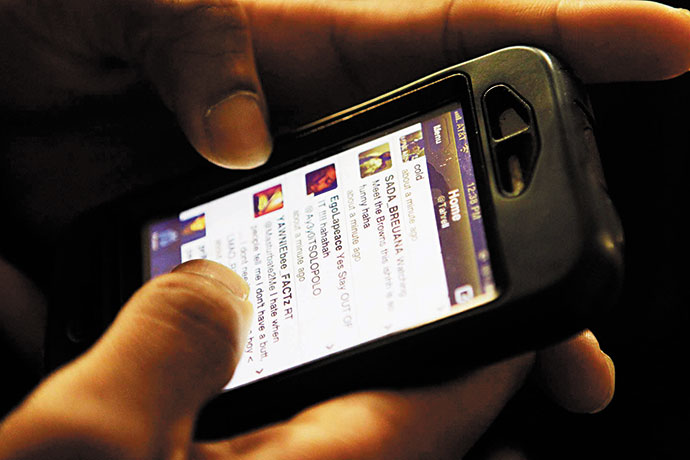Watch What You Tweet
Some people are social media haters, but not me. I am endlessly fascinated by the minutiae of other people’s lives. What people choose to post, what words they use, what kinds of websites they cite as sources — these are interesting things to the writing scholar in me. Sometimes, when I’m bored, I enjoy perusing my younger sister or mother’s Facebook pages to see the generational differences in content and tone.
Naturally, I also spend a lot of time being appalled by what people publish online for all their friends, strangers and grandmas to see. While I personally am very happy for your robust and healthy sex lives, as well as your strongly held views on gay marriage, I am always a bit surprised that people feel so comfortable about publicizing that information.
Of course, your social media account is your own, and you have the right to post about whatever you damn well please. But that isn’t how real life works.
It may be because I am friends with a few aspiring politicians, but I am always hyper-aware that social media lasts forever. Sure, you can delete that dumb tweet after 20 minutes of regret … but that won’t matter if someone else sees it. All it takes is a screenshot to immortalize your mistakes, forever. After all, people might not always engage with your posts, but you’d be surprised how many actually read and remember them.
As a general rule, I think it’s best to avoid discussion of your job on social media. Don’t brag that you bailed out early to hit the beach. Don’t share your feelings about your coworkers. Don’t reveal company secrets. Don’t complain about your work. It is very easy for your boss to find out that you said these things, and it is probably equally easy to get fired. This goes doubly so if you are friends with any of your co-workers.
Personal drama is another thing that should be posted with great discretion. I’m mostly talking about subtweeting — that delicate art of talking smack about someone without mentioning any names. Let me put it this way: If you feel the need to call someone out publicly while also ensuring plausible deniability for yourself, you probably should realize that you’re a coward and just stop.
Another aspect of online sharing that people tend to overlook is the nature of the Facebook like or Twitter favorite. Unless you’ve tinkered with your privacy settings, those are public. You may not have written anything of your own, but I can see everything you like, and that tells a story, too. It’s just something to think about.
My personal approach to social media revolves mostly around my opinions of whatever video games I’m playing or movies I’ve just watched, with occasional interludes of nice things that happened that day or funny anecdotes. I’m not an especially interesting person, as far as my social media persona goes.
On the other hand, I might manage to skirt drama until I get that job working for HYDRA.
Editor’s Note: Staff writer Paige Takeya is temporarily filling in for Christa Wittmier. Follow Paige on Twitter at @lordmayocloud. Christa’s SuperTech column will return shortly.


